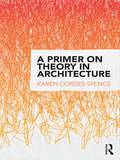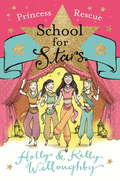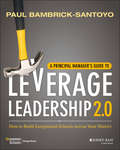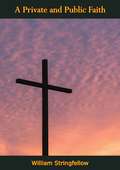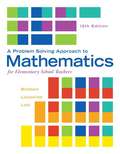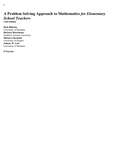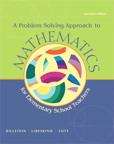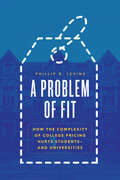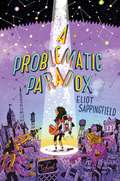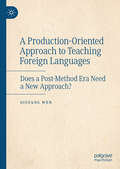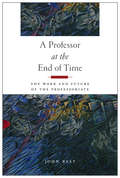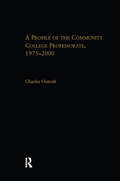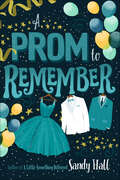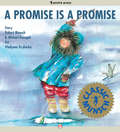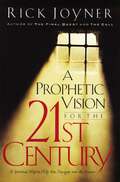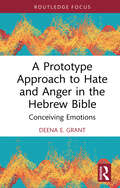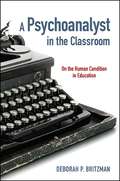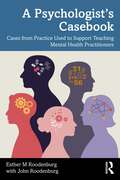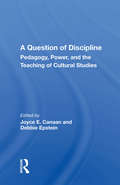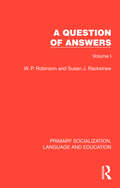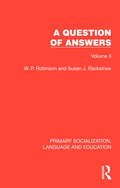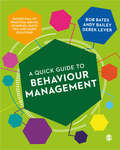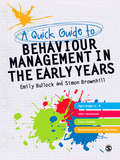- Table View
- List View
A Primer on Theory in Architecture
by Karen Cordes SpenceA Primer on Theory in Architecture discusses how theory is defined in architecture, how it is identified, its location in larger perspectives or worldviews, its relationships to other areas in architecture, and how it can be constructed. The book explores the definition, elements and characteristics of theory along with subjects associated with theory and how these associations are recognized. In addition, case studies tackle both individual theorists and common approaches to the topic. Aimed at the new student of architectural theory, if you are just beginning to tackle this subject, begin with this book.
A Princess Rescue: Book 7 (School for Stars #7)
by Kelly Willoughby Holly WilloughbyTV presenter Holly Willoughby's seventh adventure written with her sister Kelly. Join schoolgirl detectives Molly, Maria, Pippa and Sally for more mystery and glamour, set in a contemporary school for the Performing Arts.When an Indian princess arrives in school she wants to stop being royal and start doing normal things - pillow fights, midnight feasts and cooking are her idea of fun. The end of term extravaganza is a bake-off competition and Bollywood style play, so Princess Ameera and the girls are in their element. But someone is trying to get the Princess into serious trouble. Molly, Maria, Pippa and Sally jump at the chance of an adventure that will solve a royal mystery and rescue the princess.This book is GLEE for 9+ and is perfect for fans of BALLET SHOES and MALLORY TOWERS.
A Principal Manager's Guide to Leverage Leadership 2.0: How to Build Exceptional Schools Across Your District
by Paul Bambrick-SantoyoBuild better schools by training better leaders A Principal Manager’s Guide to Leverage Leadership answers the question that district leaders have been asking across the country: if Leverage Leadership is a roadmap for principals on how to lead great schools, what can principal managers and districts do to support them on that path? A Principal Manager’s Guide to Leverage Leadership offers a step-by-step guide to coaching principals to the highest levels of achievement, and it is rooted in studying the most successful principal managers and districts across the country. It can be used by principal managers/supervisors, superintendents, district and state leadership, and principal training organizations to accelerate the growth of principals in your community. Used in conjunction with Leverage Leadership 2.0, this book identifies the key actions principal managers should take to create exceptional school leaders, integrating the seven levers of leadership into district culture from the principal manager on up. With a particular emphasis on the two “super-levers” of data-driven instruction and student culture, this book is packed with advice, professional development materials, and real-world videos of principal managers in action, offering principal managers a valuable resource for bringing about change. A Principal Manager’s Guide to Leverage Leadership introduces a new unifying approach that is also highlighted in Leverage Leadership 2.0: See It, Name It, Do It. It gives you the tools to See it (see models of effective practice and identify gaps), Name it (name concrete actions for improvement) and Do it (provide means to practice these action steps until a principal masters them) With A Principal Manager’s Guide to Leverage Leadership in hand, principal managers, superintendents and principal training organizations can facilitate district-wide and state-wide transformations and hasten the benefit to the students and community as a whole.
A Private and Public Faith (The\foundations Quartet: Ser.)
by William StringfellowThe author hits hard at the manipulation of religion for personal, corporate and national self-interests; and sets forth the possibility and content of a relevant and honest witness to Christ in both private and public affairs.“This is a tract. It consists of four essays about the status of religion in contemporary American society and about the condition of the churches of American Protestantism.“As I find it, religion in America is characteristically atheistic or agnostic. Religion has virtually nothing to do with God and has little to do with the practical lives of men in society. Religion seems, mainly, to have to do with religion. The churches—particularly of Protestantism—in the United States are, to a great extent, preoccupied with religion rather than with the Gospel.That, in brief, is the substance of the essays in this tract.”
A Problem Solving Approach To Mathematics For Elementary School Teachers
by Rick Billstein Shlomo Libeskind Johnny LottA Problem Solving Approach to Mathematics for Elementary School Teachers
A Problem Solving Approach to Mathematics for Elementary School Teachers
by Rick Billstein Johnny W. Lott Shlomo Libeskind Barbara BoschmansA Problem Solving Approach to Mathematics for Elementary School Teachers not only helps students learn the math - it provides an invaluable reference to future teachers by including professional development features and discussions of today's standards. <p><p> Revised throughout to prepare students more effectively for their own classrooms, the 13th Edition gives instructors a variety of approaches to teaching, and encourages discussion and collaboration among students and with their instructors. The MyLab(TM) Math course for this revision is updated extensively with new resources and features.
A Problem Solving Approach to Mathematics for Elementary School Teachers
by Rick Billstein Shlomo Libeskind Johnny LottMore than 350,000 students have prepared for teaching mathematics with A Problem Solving Approach to Mathematics for Elementary School Teachers since its first edition, and it remains the gold standard today. This text not only helps students learn the material by promoting active learning and developing skills and concepts--it also provides an invaluable reference to future teachers by including professional development features and discussions of today's standards. The Eleventh Edition is streamlined to keep students focused on what is most important. The Common Core State Standards (CCSS) have been integrated into the book to keep current with educational developments.
A Problem of Fit: How the Complexity of College Pricing Hurts Students—and Universities
by Phillip B. LevineA critical examination of the complex system of college pricing—how it works, how it fails, and how fixing it can help both students and universities. How much does it cost to attend college in the United States today? The answer is more complex than many realize. College websites advertise a sticker price, but uncovering the actual price—the one after incorporating financial aid—can be difficult for students and families. This inherent uncertainty leads some students to forgo applying to colleges that would be the best fit for them, or even not attend college at all. The result is that millions of promising young people may lose out on one of society’s greatest opportunities for social mobility. Colleges suffer too, losing prospective students and seeing lower enrollments and less socioeconomic diversity. If markets require prices to function well, then the American higher-education system—rife as it is with ambiguity in its pricing—amounts to a market failure. In A Problem of Fit, economist Phillip B. Levine explains why institutions charge the prices they do and discusses the role of financial aid systems in facilitating—and discouraging—access to college. Affordability issues are real, but price transparency is also part of the problem. As Levine makes clear, our conversations around affordability and free tuition miss a larger truth: that the opacity of our current college-financing systems is a primary driver of inequities in education and society. In a clear-eyed assessment of educational access and aid in a post-COVID-19 economy, A Problem of Fit offers a trenchant new argument for educational reforms that are well within reach.
A Problematic Paradox
by Eliot SappingfieldGuardians of the Galaxy meets The Hitchhiker's Guide to the Galaxy in this wild, warm-hearted, and hilarious sci-fi debut about a brainy young girl who is recruited for a very special boarding school. <P><P> Nikola Kross has given up on living in harmony with classmates and exasperated teachers: she prefers dabbling in experimental chemistry to fitting in. But when her life is axially inverted by a gang of extraterrestrials who kidnap her dad and attempt to recruit her into their service, she discovers he's been keeping a world of secrets from her--including the school for geniuses where she's sent for refuge, a place where classes like Practical Quantum Mechanics are the norm and where students use wormholes to commute to class. For Nikola, the hard part isn't school, it's making friends, especially when the student body isn't (entirely) human. <P><P> But the most puzzling paradox of all is Nikola herself, who has certain abilities that no one understands--abilities that put her whole school in greater danger than she could have imagined.* <P><P> "A glorious cacophony of wildly inventive gadgets, gags, and action." --Kirkus Reviews, starred review
A Production-Oriented Approach to Teaching Foreign Languages: Does a Post-Method Era Need a New Approach?
by Qiufang WenThis book introduces and explains the production-oriented approach (POA) to teaching foreign languages, a new approach developed by the author through 15 years of rigorous experimentation. Addressing the common challenge of separating input from output in language learning, the book details POA procedures in three phases: motivating, enabling, and assessing. It explores the theoretical underpinnings of the POA, including sociocultural, usage-based linguistic, second language acquisition, and curriculum theories. The author presents a series of case studies showcasing the POA in practice. She also provides a comparative analysis with the task-based approach and project-based learning, highlighting similarities and differences between the two. This book will be essential reading for teachers and scholars in applied linguistics, modern foreign languages, language acquisition, and language education, offering valuable insights and practical guidance for enhancing language teaching effectiveness.
A Professor at the End of Time: The Work and Future of the Professoriate
by John BestA Professor at the End of Time tells one professor’s story in the context of the rapid reconfiguration of higher education going on now, and analyzes what the job included before the supernova of technological innovation, the general influx of less-well-prepared students, and the diminution of state and federal support wrought wholesale changes on the profession.
A Profile of the Community College Professorate, 1975-2000 (RoutledgeFalmer Studies in Higher Education)
by Charles OutcaltThe nation's 275,000 community college instructors teach over 5,500,000 students, or over one-third of all college students in the US. However, community colleges and their instructors have received little attention in either the academic or popular press. This book presents the results of an unprecedented national study of the community college professoriate. It offers insights into a wide variety of their attitudes and practices, and includes chapters on such crucial topics as instruction, satisfaction, professional involvement, and the use of reference groups. In addition, it provides a unique longitudinal perspective on community college faculty by updating a major study of the professoriate conducted in the 1970s. The book debunks some popular myths regarding community college faculty, such as notions that collaborative teaching and in-class technology have become more prevalent. In addition, it offers a portrait of the professoriate as increasingly diverse, as well as increasingly fragmented. The book concludes with practical recommendations for administrators and faculty interested in improving the quality of faculty lives, and faculty practice, at their institutions.
A Prom to Remember
by Sandy HallLove it or hate it, you'll never forget it. In this heart-warming novel, Swoon Reads star, Sandy Hall, explores a classic high school celebration, capturing every relatable and hilarious teen milestone along the way.Cora: Dating Perfect Boyfriend Jamie. Has NO IDEA how to break up with him... Paisley: Anti-prom. Somehow nominated her anxiety-ridden best friend for prom king...Henry: Hates social situations. Invited to prom by the most popular girl in school. SEND HELP!Otis: Half of one of the cutest couples in his class. Not quite ready for a post-prom hotel room... Lizzie: Shy. Excited to go to prom. With a boy. Whose name she doesn't know. Cameron: Loner. Over high school. Just wants to meet the mysterious girl who's been leaving him notes... Jacinta: Unnamed Nerd Girl #3. Determined to become the star of her own life, starting with prom...A Prom to Remember, from Sandy Hall (author of A Little Something Different), is a funny and cinematic look at the biggest dance of every high schooler's life.Praise for Sandy Hall:“Romance with a twist.” —Booklist on A Little Something Different"It’s one of the best romances I’ve ever read." —Here's to Happy Endings on Been Here All Along“An authentic teen voice with plenty of charm.” —School Library Journal on Signs Point to Yes
A Promise Is a Promise
by Robert Munsch Michael Kusugak Vladyana KrykorkaWhen Allashua disobeys her parents and goes fishing on the sea ice, she has to use her wits to escape and to further trick the Qallupilluit when she promises to bring her brothers and sisters back to them.This fixed-layout ebook, which preserves the design and layout of the original print book, features read-along narration by the author as well as music and sound effects.
A Prophetic Vision for the 21st Century: A Spiritual Map to Help You Navigate into the Future
by Rick JoynerRick Joyner says, "We have tended to over-focus on the end of the age-the end times. But this is not just the end, it's the beginning of a new age when Christ will rule over the earth! For the church to reclaim the high ground of hope for the future, we must begin to proclaim the beginning, the coming of the kingdom." In A Prophetic Vision for the 21st Century, Joyner discusses why revival tarries for America, what it means to be delivered from the Mark of the Beast, the rise and fall of America, the greatest awakening, a famine in the land, and practical ways to serve in the latter days. It includes encouragement for weary church leaders as well as the second part of The Hordes of Hell are Marching, illustrating the unified church rising as an army in the most pivotal battle of all time between the light and darkness.
A Prototype Approach to Hate and Anger in the Hebrew Bible (Routledge Interdisciplinary Perspectives on Biblical Criticism)
by Deena E. GrantThis innovative book applies findings from the field of cognitive linguistics to the study of emotions in the Hebrew Bible. The book draws on the prototype approach to conceptual categories to help interpret emotion language in biblical passages. Contemporary scholarship has come to recognize that biblical emotion terms do not necessarily possess exact equivalents within our modern lexicons, even if some of these terms express (or appear to express) concepts similar to those conveyed by modern emotion language. In particular, the book focuses on sn’ and ḫrh, which are almost always equated in modern English with hate and anger. However, the ancient Hebrew roots evoke varied and robust emotion-scripts that are quite different than their English counterparts. We see how the prototype script model may help to expose the unique nuances of sn’ and ḫrh and put into profile elements of these emotions that may otherwise go unnoticed. Overall, the study demonstrates that even though modern emotion terms cannot fully capture the ancient emotional experience, our shared use of language to evoke meaning offers us entrée into the emotional world represented in the Hebrew Bible.
A Psychoanalyst in the Classroom: On the Human Condition in Education (SUNY series, Transforming Subjects: Psychoanalysis, Culture, and Studies in Education)
by Deborah P. BritzmanA Psychoanalyst in the Classroom provides rich descriptions of the surprising ways individuals handle matters of love and hate when dealing with reading and writing in the classroom. With wit and sharp observations, Deborah P. Britzman advocates for a generous recognition of the vulnerabilities, creativity, and responsibilities of university learning. Britzman develops themes that include the handling of technique in psychoanalysis and pedagogy, the uses of theory, regression to adolescence, the inner life of gender, the untold story of the writing block, and everyday mistakes in teaching and learning. She also examines the relationship between mental health and experiences of teaching and learning.
A Psychologist’s Casebook: Cases from Practice Used to Support Teaching Mental Health Practitioners
by Esther M Roodenburg John RoodenburgDrawing on examples from clinical practice, this book presents evidence‑based psychological principles in an applied context to support effective practice in the helping professions.This book takes a narrative approach, presenting a collection of individual cases to complement the traditionally theory‑heavy education and training of mental health professionals. It demonstrates easy to learn, practical skills found invaluable in supporting and treating a broad range of clients, from pre‑verbal children to the elderly. The case examples are designed to encourage and motivate a more comprehensive understanding of general psychological terms, which is further supported by callouts, reflection prompts, and extension exercises. Rich with examples from the authors’ many years of clinical psychology practice and graduate teaching, this book is written for students and practitioners alike.
A Quality of Life Approach to Career Development
by Geoffrey PeruniakCareer development - the processes that shape a person's career over his or her life - is a relatively new field of research in applied psychology. In A Quality of Life Approach to Career Development, Geoffrey S. Peruniak draws from philosophy, sociology, literature, anthropology, psychology, political science, and economics to form a new, holistic approach to career development that extends beyond paid work to include all aspects of life. Emphasizing that a person is a whole entity rather than a role or category, Peruniak also explores nature and the place of community in relation to career development theories.A highly original text with broad theoretical appeal to several disciplines, A Quality of Life Approach to Career Development also includes exercises and case studies. Most importantly, this book provides a new approach that will complement more specialized methods and serve as a foundation for further study in the field.
A Question Of Discipline: Pedagogy, Power, And The Teaching Of Cultural Studies
by Debbie Epstein Joyce E. CanaanDrawing together reflexive practitioners from the UK, United States, Australia, and Spain, this book raises questions about the nature of knowledge and the simultaneously political and intellectual project that constitutes Cultural Studies in its specific geopolitical and historical locations.
A Question of Answers: Volume I (Primary Socialization, Language and Education)
by W. P. Robinson Susan J. RackstrawIn the early 1970s, the problem of arousing and maintaining the curiosity of children had been a recurrent theme in reports concerned with the development of new school curricula. However, before these ideas could be translated into soundly based practical measures, an increased understanding of what is involved in the activities of questioning and answering was needed.Originally published in 1972, the research reported in these two volumes presents a theoretical framework for describing linguistic features of a range of verbally expressed answers and their associated questions. Basil Bernstein’s theory is used to generate a number of predictions about the variety and quality of answers that mothers and children are likely to offer to ‘wh’ questions. The usefulness of the scheme is tested against the answering behaviour of members of different social classes, and, in the main, Bernstein’s predictions are supported. The validity of the categories in the classificatory scheme is explored more fully in later chapters by means of a correlational analysis of the answers of seven-year-old children.Volumes sold separately.
A Question of Answers: Volume II (Primary Socialization, Language and Education)
by W. P. Robinson Susan J. RackstrawIn the early 1970s, the problem of arousing and maintaining the curiosity of children had been a recurrent theme in reports concerned with the development of new school curricula. However, before these ideas could be translated into soundly based practical measures, an increased understanding of what is involved in the activities of questioning and answering was needed.Originally published in 1972, the research reported in these two volumes presents a theoretical framework for describing linguistic features of a range of verbally expressed answers and their associated questions. Basil Bernstein’s theory is used to generate a number of predictions about the variety and quality of answers that mothers and children are likely to offer to ‘wh’ questions. The usefulness of the scheme is tested against the answering behaviour of members of different social classes, and, in the main, Bernstein’s predictions are supported. The validity of the categories in the classificatory scheme is explored more fully in later chapters by means of a correlational analysis of the answers of seven-year-old children.Volumes sold separately.
A Quick Guide to Behaviour Management
by Andy Bailey Dr Bob Bates Derek LeverEven the best and most experienced teachers can struggle with classroom control and it is likely your experiences will vary day-to-day. Bestselling author of Learning Theories Simplified Bob Bates, together with former head teachers Andy Bailey and Derek Lever, offers one-stop support for all teachers in A Quick Guide to Behaviour Management. Whether you are working with children, young people or adults it will help you: · understand why challenging behaviour occurs · learn how to be a great teacher in the face of challenging behaviour · recognise a range of personalities you may encounter in the classroom and the strategies for dealing with them Blending learning theories with real-life case studies, it fosters a deeper understanding of what causes challenging behaviour and equips you with all you need to know to handle it!
A Quick Guide to Behaviour Management
by Andy Bailey Derek Lever Bob BatesEven the best and most experienced teachers can struggle with classroom control and it is likely your experiences will vary day-to-day. Bestselling author of Learning Theories Simplified Bob Bates, together with former head teachers Andy Bailey and Derek Lever, offers one-stop support for all teachers in A Quick Guide to Behaviour Management. Whether you are working with children, young people or adults it will help you: · understand why challenging behaviour occurs · learn how to be a great teacher in the face of challenging behaviour · recognise a range of personalities you may encounter in the classroom and the strategies for dealing with them Blending learning theories with real-life case studies, it fosters a deeper understanding of what causes challenging behaviour and equips you with all you need to know to handle it!
A Quick Guide to Behaviour Management in the Early Years
by Simon Brownhill Emily E. BullockManaging the behaviour of young children can be a real challenge, this book provides you with 100 tried and tested ideas for the long, medium and short term. It shows how to select and adopt the right approach, how to analyze, reflect on and modify practice to ensure consistency and fairness and that positive behaviour develops. Each of the 100 ideas focuses on a single strategy, and looks at: - structures and systems; - using fun, child-orientated resources; - rewarding good behaviour, and managing sanctions; - the advanftages of various approaches; - case studies from practice; - adaptations of strategies for different settings and ages. The book suggests lively strategies that keep behaviour management fresh and effective. Advice is given to support children with Special Educational Needs and examples of behaviour management in different settings are shared. An easily accessible guide for all practitioners working with children aged 3 to 8.
